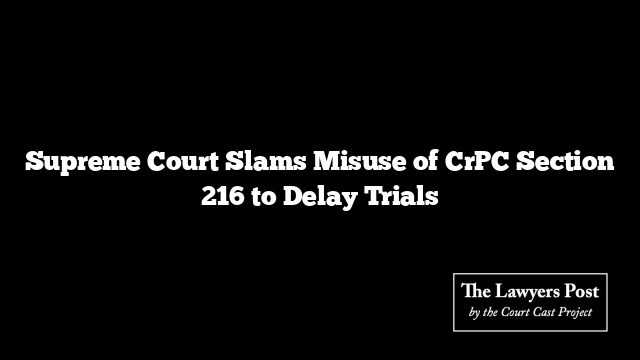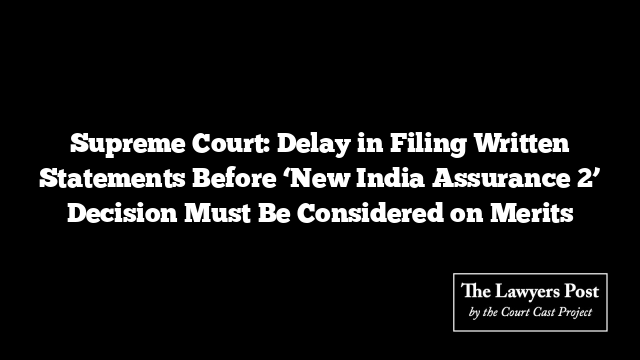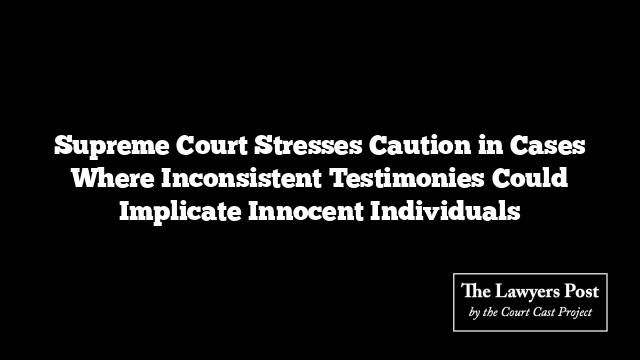In a strong rebuke, the Supreme Court condemned the growing practice of accused individuals filing applications under Section 216 of the Criminal Procedure Code (CrPC) to alter charges after their requests for discharge have been rejected. The Bench, comprising Justices Bela M. Trivedi and Satish Chandra Sharma, made it clear that Section 216 does not grant the accused any right to seek discharge again once charges have been framed, especially after a previous discharge application has been dismissed under Section 227.
The Court emphasized that these applications, often filed either out of ignorance or to intentionally delay proceedings, force trial courts into an unnecessary decision-making process. The situation is further exacerbated when such decisions are subsequently challenged in higher courts, derailing the entire criminal trial.
The justices described this practice as “highly deplorable” and stressed the need for strict judicial measures to curb it. They stated, “Section 216 does not give any right to the accused to file a fresh application seeking discharge after the charge is framed, particularly when a discharge application under Section 227 has already been dismissed. Unfortunately, such applications are being filed in trial courts, sometimes in ignorance of law and sometimes deliberately to delay proceedings.”
The case in question involved a murder trial where the accused, after being denied discharge by both the Sessions Court and the High Court, filed another application under Section 216. Although the High Court allowed this application, the Supreme Court found this action deeply flawed. The justices criticized the High Court for not recognizing that the order it challenged was interlocutory and should not have been interfered with under revisional jurisdiction.
Referencing the case of Amit Kapoor vs. Ramesh Chander, the Supreme Court underscored the limited scope of revisional jurisdiction under Section 397 CrPC. It noted that the High Court had acted “on an absolutely extraneous consideration and in utter disregard of the settled legal position,” rendering its decision illegal and untenable. The Supreme Court overturned the High Court’s order and imposed a fine of Rs. 50,000 on the respondent for filing frivolous applications.
The Sessions Court has been directed to continue the trial against all accused, including Respondent No. 2, as quickly as possible.





